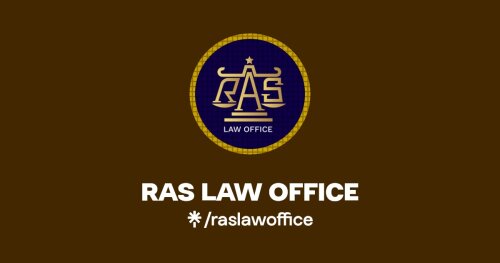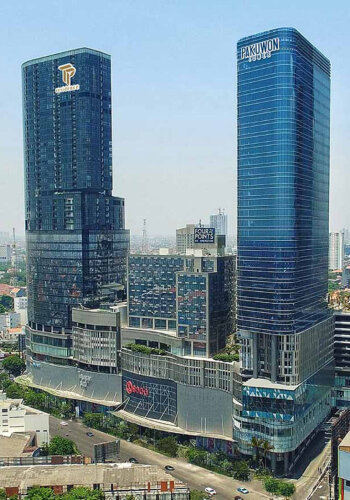Best Criminal Litigation Lawyers in Surabaya
Share your needs with us, get contacted by law firms.
Free. Takes 2 min.
List of the best lawyers in Surabaya, Indonesia
About Criminal Litigation Law in Surabaya, Indonesia
Criminal litigation refers to the legal procedures and processes involved in criminal cases in Surabaya, Indonesia. It is the mechanism through which individuals accused of committing crimes are prosecuted and held accountable for their actions. Criminal litigation is governed by a set of laws and regulations that outline the rights and responsibilities of both the accused and the state. These laws serve to ensure a fair trial and protect the fundamental rights of all parties involved.
Why You May Need a Lawyer
There are various situations where it is advisable to seek legal assistance in criminal litigation cases in Surabaya. Some common scenarios include:
- If you have been accused of committing a crime and are facing charges, it is crucial to have a lawyer who can protect your rights, build a strong defense, and assist you throughout the legal process.
- If you are a victim of a crime, a lawyer can guide you through the process of reporting the crime, providing necessary evidence, and representing your interests during the legal proceedings.
- If you believe you have been falsely accused, a lawyer can help gather evidence, investigate your case, and present a robust defense strategy to prove your innocence.
- If you are involved in a criminal investigation, whether as a witness or a potential suspect, a lawyer can ensure that your rights are respected, advise you on your legal obligations, and help you navigate the process without self-incrimination.
Local Laws Overview
In Surabaya, Indonesia, criminal litigation is governed by the Criminal Procedure Code (KUHAP) and other relevant laws. Some key aspects of local laws that are particularly relevant to criminal litigation include:
- The presumption of innocence, where the burden of proof lies with the prosecution.
- The right to legal representation, including the provision of a lawyer for indigent defendants.
- The right to remain silent and protect oneself from self-incrimination.
- Procedures for arrest, detention, and release of suspects.
- The process for presenting evidence and examining witnesses during trial.
- Possible penalties and sentencing guidelines for different criminal offenses.
Frequently Asked Questions
1. Can I represent myself in a criminal litigation case in Surabaya?
Yes, you have the right to represent yourself in a criminal case. However, it is highly recommended to seek legal assistance from a qualified criminal defense lawyer who has expertise in Surabaya's legal system. An experienced lawyer can provide guidance, protect your rights, and navigate the complex legal process on your behalf.
2. How can a lawyer help me if I am a victim of a crime in Surabaya?
A lawyer can assist you in reporting the crime to the appropriate authorities, ensuring your rights as a victim are protected, and representing your interests during the criminal proceedings. They can also help you understand your legal options, provide guidance on obtaining compensation or restitution, and support you throughout the emotional and legal challenges you may face.
3. What should I do if I am approached by the police regarding a criminal investigation?
If you are approached by the police regarding a criminal investigation in Surabaya, it is important to remain calm and remember your rights. You have the right to stay silent and not incriminate yourself. It is advisable to consult with a lawyer as soon as possible to understand your legal obligations and ensure your rights are protected during the investigation.
4. What is the difference between a misdemeanor and a felony in Surabaya?
In Surabaya, criminal offenses are generally classified into two categories: misdemeanors and felonies. Misdemeanors are less serious crimes with comparatively milder penalties, such as petty theft or public intoxication. Felonies, on the other hand, refer to more serious offenses, such as murder or drug trafficking, and carry harsher punishments if convicted.
5. How long does a criminal litigation case usually take in Surabaya?
The duration of a criminal litigation case in Surabaya can vary depending on various factors, such as the complexity of the case, the availability of evidence, and the court's workload. Some cases may conclude within a few months, while more complex cases may take a year or even longer. Your lawyer can provide a better estimate based on the specifics of your case.
Additional Resources
For further resources and assistance related to criminal litigation in Surabaya, consider reaching out to the following:
- Surabaya Bar Association: A professional organization that can provide referrals to qualified criminal defense lawyers in Surabaya.
- Indonesian Legal Aid Foundation (YLBHI): A non-profit organization that offers legal aid and assistance to individuals in need, including those involved in criminal cases.
- Surabaya Legal Aid Institute (LBH Surabaya): A local organization specializing in providing free legal aid and representation to disadvantaged individuals, including criminal defendants.
- Surabaya Court System: Familiarize yourself with the local court system by visiting or contacting the Surabaya District Court and other relevant courts for information on procedures and resources.
Next Steps
If you require legal assistance in a criminal litigation case in Surabaya, it is crucial to take the following steps:
- Contact a qualified criminal defense lawyer who can assess your case and provide legal advice tailored to your situation.
- Provide your lawyer with all relevant information, evidence, and documentation related to your case.
- Cooperate with your lawyer throughout the legal process, follow their guidance, and attend all necessary court hearings and meetings.
- Seek emotional and social support to help you cope with the challenges and stress that may arise during the litigation process.
- Stay updated on the progress of your case by maintaining regular communication with your lawyer and asking for updates when needed.
Lawzana helps you find the best lawyers and law firms in Surabaya through a curated and pre-screened list of qualified legal professionals. Our platform offers rankings and detailed profiles of attorneys and law firms, allowing you to compare based on practice areas, including Criminal Litigation, experience, and client feedback.
Each profile includes a description of the firm's areas of practice, client reviews, team members and partners, year of establishment, spoken languages, office locations, contact information, social media presence, and any published articles or resources. Most firms on our platform speak English and are experienced in both local and international legal matters.
Get a quote from top-rated law firms in Surabaya, Indonesia — quickly, securely, and without unnecessary hassle.
Disclaimer:
The information provided on this page is for general informational purposes only and does not constitute legal advice. While we strive to ensure the accuracy and relevance of the content, legal information may change over time, and interpretations of the law can vary. You should always consult with a qualified legal professional for advice specific to your situation.
We disclaim all liability for actions taken or not taken based on the content of this page. If you believe any information is incorrect or outdated, please contact us, and we will review and update it where appropriate.
















